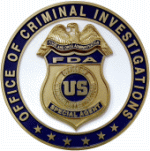Canadian Seafood Wholesaler Sentenced for Illegally Importing Fish into U.S.
 Department of Justice
Department of Justice
U.S. Attorney’s Office
Western District of Washington
FOR IMMEDIATE RELEASE
Friday, December 6, 2019
Fish had been denied entry due to spoilage, was then relabeled and imported into Western Washington
Seattle – Seven Seas Fish Company, Ltd., of Richmond, B.C., Canada, and a company owner, JOHN HERAS, 78, of Delta, B.C., were sentenced today in U.S. District Court in Seattle to significant monetary fines and periods of probation for importation of previously refused food. The company and HERAS admit that, between October 2014 and August 2015, they imported more than 9,000 pounds of potentially adulterated fish into the U.S. The fish had previously been refused entry into the U.S., because the FDA judged samples of the fish too decomposed and putrid. At the sentencing hearing, Magistrate Judge Mary Alice Theiler said, “this activity leads consumers to be concerned about food safety.”
“On two prior occasions, this company put its financial success over the food import regulations and the safety of consumers,” said U.S. Attorney Brian T. Moran. “Now, with a third strike, it is appropriate that the company and its part-owner face a federal criminal conviction and its consequences.”
According to records filed in the case, in June 2014, Seven Seas purchased 12,100 pounds of frozen corvina, a white fish similar to sea bass. The fish was purchased for $36,375 from a seafood company in Mexico. Seven Seas attempted to have the fish imported into the U.S. at the Otay Mesa Port of Entry. However, when Food and Drug Administration (FDA) Consumer Safety Officers examined the fish, they determined that one-third of the samples from the shipment were more than 20 percent spoiled. The shipment was refused entry to the U.S. However, Seven Seas arranged for the fish to be lawfully shipped through the U.S. to its plant in Richmond, B.C., claiming that the product would be distributed in Canada.
After the fish arrived in B.C., HERAS cooked and ate some of the fish and claimed he found nothing wrong with it. Despite his knowledge that the fish had been refused entry to the U.S., HERAS encouraged others within Seven Seas to sell the fish to customers in Washington State and elsewhere. Some 9,020 pounds of the fish were imported into the U.S. without the required notice to the Secretary of Health and Human services.
The FDA has not found any illness linked to those who consumed the fish.
The company was ordered to pay a $150,000 fine within six months of today. For three years, the company will be on probation with increased scrutiny and surveillance of its imports into the U.S.
HERAS will pay a $2,000 fine and will be on probation for one year. The company claims he no longer has a leadership role at Seven Seas.
The company has a tarnished record regarding its compliance with import regulations. In 2008, Canadian salmon owned by the company was seized because it was sold in violation of Canadian law and the Lacey Act. The fish, worth nearly $100,000, had been caught by illegal gill netting. Just one year later, in 2009, Seven Seas was fined $50,000 for selling salmon without notifying regulators after the fish had been detained because it was found unfit for human consumption. The fish was sold for mink feed, but without the required notice to the agency that had issued the detainer.
The case was investigated by the FDA Office of Criminal Investigation, Customs and Border Protection (CBP), and Homeland Security Investigations. The case was prosecuted by Assistant United States Attorney Matthew Diggs.
Topic(s):
Consumer Protection
Wildlife
Component(s):
USAO - Washington, Western
Contact:
Press contact for the U.S. Attorney’s Office is Communications Director Emily Langlie at (206) 553-4110 or Emily.Langlie@usdoj.gov.
